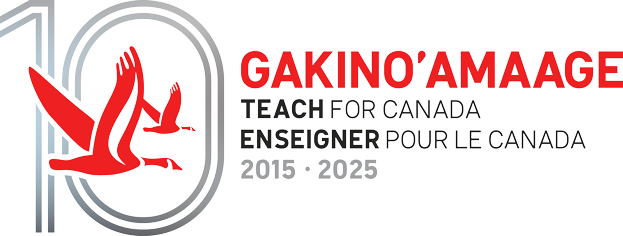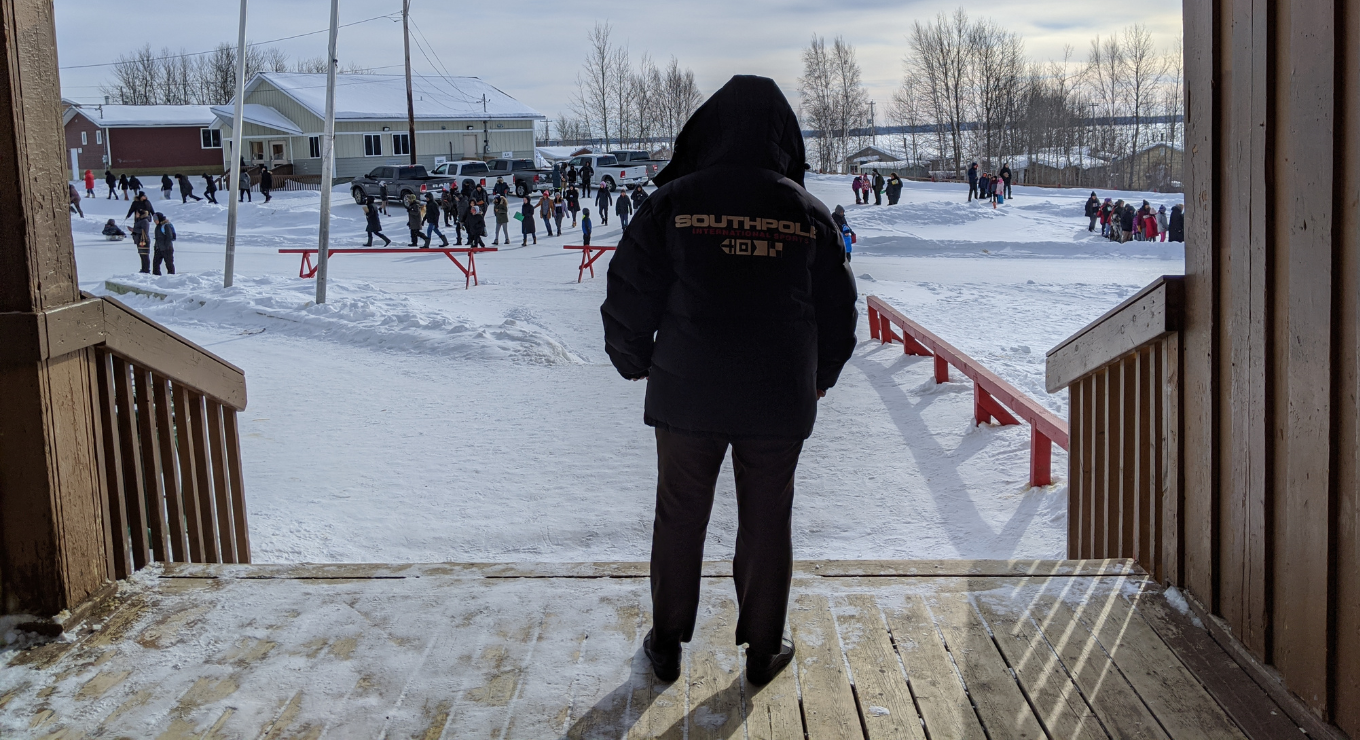Elisa Bourdon is a Teach For Canada alumni and Principal at John C. Yesno Education Centre in Eabametoong First Nation. She joined Teach For Canada’s 2017 cohort and began teaching science. In her first year, she was asked to step into the role of acting Principal before becoming Vice Principal in 2018 and, in 2022, Principal.
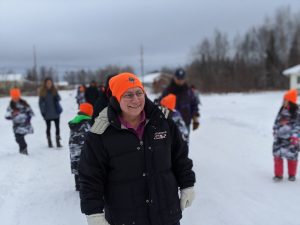
Elisa Bourdon is a Teach For Canada alumni and Principal of John C. Yesno Education Centre in Eabametoong First Nation.
Elisa’s transition from a teaching role into a series of administrative positions made her an ideal candidate for Teach For Canada’s Administrator Support Programming, which equips Northern educators with the tools and resources to support successful school leadership and reduce First Nations teacher attrition rates.
Teach For Canada proudly offers northern principals like Elisa wraparound personal, professional, and peer support, including monthly check-ins, biannual coaching, and resource support from an experienced practitioner. We also offer regular opportunities for administrators to come together as a peer network to connect with, learn from, and support each other.
Like many First Nations, Eabametoong has experienced its fair share of challenges throughout the past year.
“Eabametoong has been struggling without access to potable water while navigating school closures due to COVID-19,” says Judy Blaney, Administrative Development Manager at Teach For Canada. “But when you dig deeper, there are so many good things happening in the community.”
One great thing happening in Eabametoong is an Ojibwe language course sponsored by Matawa First Nations Management. Established in 1988, Matawa is a non-profit Tribal Council that provides advisory services and programs to nine-member Ojibwe and Cree First Nations.
Elisa Bourdon and her colleague, Vice Principal Thomas Stanley, are two of four educators in Eabametoong who received special permission to take part in the Ojibwe language course hosted by community member Gordon Yellowhead.
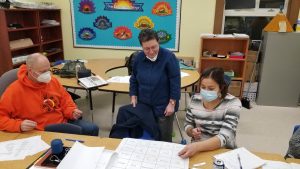
Thomas Stanley and Elisa Bourdon take part in an Ojibwe language course.
The 32-week program invites community members over 16 to attend two three-hour classes a week. Outside of learning the basics of Ojibwe, Bourden has found the connections she makes with community members to be just as valuable.
“You aren’t just learning a language. You’re sitting in a room for six hours a week with members of your community,” says Blaney of Elisa and Thomas’s participation.
“It’s great,” says Bourdon. “I didn’t expect to be given the chance to take part. I wanted the seats to be filled by community members, and to be honest, I anticipated a high demand from locals.” Ten participants signed up initially, and the course now has 20 attendees.
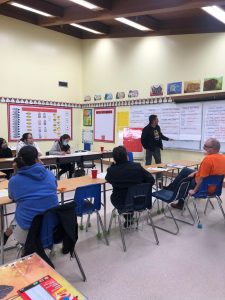
There are approximately 20 attendees in the 32-week Ojibwe language course offered by Matawa First Nations Management.
Bourdon says that the language program being offered in Eabametoong is long overdue.
“Language revitalization is important,” she says. While John C. Yesno has three native language teachers on their staff team, many of the students do not speak fluent Ojibwe.
Stanley mentioned that he typically practices his Ojibwe outside the school with older people in the community because many of his students do not understand it.
“In our school, a lot of [Ojibwe] vocabulary is being taught. The kids write in syllabics, but they don’t speak Ojibwe conversationally.”I would love for the language to be used completely throughout the school,” says Bourdon.
“I am not sure how frequently students use it outside of school, but in the classroom, I would love to hear students speaking to each other in Ojibwe.”
In an effort to further integrate Ojibwe into their school, both Elisa and Thomas have begun to open morning announcements and assemblies in Ojibwe and plan to continue using the language as much as they can.
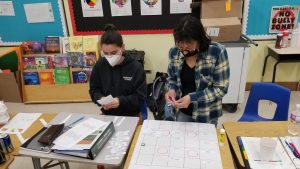
As their language courses continue, Elisa and Thomas will continue to participate in Teach For Canada’s Administrative Support Programming.
“Judy is awesome,” says Elisa of Judy Blaney, Teach For Canada’s Administrative Development Manager. “She’s easy to speak to, and her knowledge is invaluable. She’s helped me to remain calm and not get overwhelmed.”
“One piece of advice that Judy shared with me was to always have something in your back pocket, so that if things fall through–if the unexpected happens–you have something planned. I took that seriously, and it has allowed me to have more success as a leader. Up in the North, nothing is guaranteed–not the deliveries, the weather, the power, or the water. You always have to be thinking ahead.”
As the team at John C. Yesno continues to adapt and overcome challenges while making an effort to deepen its students’ understanding of Ojibwe, Blaney hopes that the peer network of administrators accessible through Teach For Canada will support Elisa in working toward her goals.
“Teach For Canada’s network of administrators is useful for sharing experiences and knowing that you are not alone. While hardships can be shared across communities, finding solutions can be particular to the community that you’re in,” says Bourdon.
“My vision is an Anishinaabe school, where teachers speak Ojibwe all the time. We’ve got to plant those seeds early–and my hope is that if kids become immersed in Ojibwe at school, they will bring it home with them. Supporting new generations to retain and revitalize Indigenous language is as important as ever.”
Are you interested in teaching in a northern First Nation? Learn more and apply.


